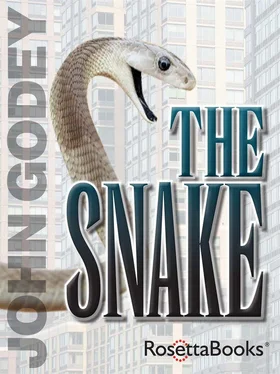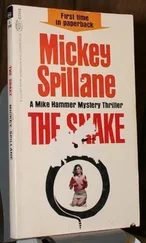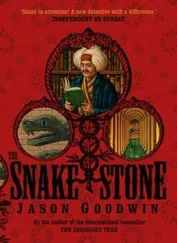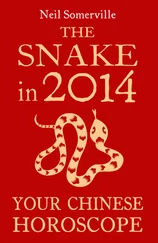John Godey - The Snake
Здесь есть возможность читать онлайн «John Godey - The Snake» весь текст электронной книги совершенно бесплатно (целиком полную версию без сокращений). В некоторых случаях можно слушать аудио, скачать через торрент в формате fb2 и присутствует краткое содержание. Жанр: Ужасы и Мистика, Триллер, на английском языке. Описание произведения, (предисловие) а так же отзывы посетителей доступны на портале библиотеки ЛибКат.
- Название:The Snake
- Автор:
- Жанр:
- Год:неизвестен
- ISBN:нет данных
- Рейтинг книги:3 / 5. Голосов: 1
-
Избранное:Добавить в избранное
- Отзывы:
-
Ваша оценка:
- 60
- 1
- 2
- 3
- 4
- 5
The Snake: краткое содержание, описание и аннотация
Предлагаем к чтению аннотацию, описание, краткое содержание или предисловие (зависит от того, что написал сам автор книги «The Snake»). Если вы не нашли необходимую информацию о книге — напишите в комментариях, мы постараемся отыскать её.
The Snake — читать онлайн бесплатно полную книгу (весь текст) целиком
Ниже представлен текст книги, разбитый по страницам. Система сохранения места последней прочитанной страницы, позволяет с удобством читать онлайн бесплатно книгу «The Snake», без необходимости каждый раз заново искать на чём Вы остановились. Поставьте закладку, и сможете в любой момент перейти на страницу, на которой закончили чтение.
Интервал:
Закладка:
The snake was eleven feet, two inches long, and slender. Its head was coffin-sided and comparatively small for the length of its body. Its eyes, dark brown and round, were wide open. It was unable to shut its eyes because it had neither eyelids nor nictitating membrane.
The snake was asleep.
With the exception of weekend nights, when the traffic was heavy and continuous until dawn, the emergency ward of East Side Hospital was normally at its busiest between 4 P.m. and midnight. Those were the hours when most of the patients flocked to emergency for nonemergency treatment they would normally have sought in the clinic, which closed at four o'clock.
Now, at 3:45 A.M., the reception room was empty except for a sleeping wino with a stiffly bandaged forefinger. He had been treated more than an hour ago, but showed no disposition to leave. Probably, Nurse Rosamund Johnson thought, glancing at him from behind the reception desk, because of the air conditioning. Well, he was peaceful enough, poor old bum, so let him hang around.
She was working on a sheaf of Blue Cross claim sheets when two cops came in with a patient. His feet were dragging, his head lolling, and he seemed to be semicomatose.
"Found this on Fifth Avenue," one of the cops said. "He's got the blue face."
Nurse Johnson punched a key on her intercom and said, "Billy, bring out a stretcher, stat," then punched another key and, after a moment, said, "Dr. Papalco, we have a patient in a cyanosed condition who's having trouble breathing. Come immediately, please." She listened for a moment and then said sharply, "Look, doctor, you better come immediately, Stat."
"Overdose," one of the cops said. "I seen hundreds of them."
The nurse, grimacing at the intercom, said, "How's he ever gonna be a doctor if he don't learn how to wake up?"
"He can't breathe," the other cop said. "My opinion, it's heart attack."
An attendant came through an inner door rolling a stretcher.
"Put the patient in Room D, Billy," Nurse Johnson said. "Dr. Papaleo is on his way."
The two cops strained, helping the attendant lift their burden onto the stretcher. "Dead weight," one of them said, arching an eyebrow. "If you know what I mean."
Nurse Johnson said, "Can you fellows hang around a few minutes in case the doctor wants to ask some questions? There's a coffee machine around the comer."
One of the cops nodded, and the other one said, "I'll call it in."
Dr. Charles Papaleo disliked the emergency ward almost as much as he disliked the surgery, which, in turn, he disliked more than obstetrics and less than medicine. He recognized that in terms of gross experience emergency ward service was invaluable for a first-year intern, but that didn't change his view of it. His problem was that he was abnormally shy, and had trouble in his dealings with people. Left to himself, he would have chosen another profession, something reclusive, no doubt, but his father and brother, both of whom were physicians, wouldn't hear of it, and they were overwhelming. Nevertheless, he had prevailed in making his own choice of a specialty-radiology. As a radiologist he would rarely have to face a patient from one year to the next, just his shadow imprinted on a sheet of film negative.
The patient on the table in Room D, Papaleo thought wryly, posed no problems in the personal sense. He was obtunded, semicomatose. On the other hand, his inability to respond to questions that might provide helpful signposts into the diagnostic process did pose medical problems. Looking down at the man, Papaleo thought, Overdose, I'll bet it's good old overdose. But he put the notion out of mind. Physicians were expected to follow form, especially first-year intems, who were discouraged from making snap judgments. "Even if you turn out to be correct," one of his professors was fond of saying, "the lightning-flash diagnosis in fledgling doctors-the Kildare syndrome-is either brilliance or dumb luck. Our science is based on neither brilliance nor dumb luck but knowledge."
So-attend to the symptoms. Cyanotic. Marked hypoventilation-the patient was breathing poorly, although he didn't seem to be fighting desperately for air, as people usually did who couldn't breathe. Meaningful? Maybe, but file it away for the moment. Meanwhile, the airway receives first attention. Oxygen. He found a nasal catheter and inserted it. Nostrils filled with heavy mucus-have to check to see that it didn't clog the catheter.
A nurse came into the room. Kelly, an old hand. It figured. They liked to have someone around to keep an eye on the first-year interns, and if no doctor was available, an experienced nurse was next best.
Without looking at her, Papaleo said, "Blood pressure cuff, please."
He opened the patient's mouth-slimy, thick mucous discharge, like the nose-and checked the tongue. No falling back of tongue-takes care of that.
Didn't seem to be any obstruction, either. He sniffed the patient's breath.
No alcohol smell, just a strong bouquet of… what? Chili peppers.
Nurse Kelly was winding the blood pressure cuff around the patient's arm, her movements deft, practiced. Papaleo said, "Never mind that for a moment.
The airway is more important. Will you get the suction apparatus, please?"
Kelly nodded and moved off briskly. Papaleo, suddenly remembering the old yam about the green intern who had diagnosed a day's growth of blue-black beard as cyanosis, examined the patient's fingernails, lips, and tongue.
All blue. Cyanosis, not need of a shave.
Nurse Kelly came back with the suction apparatus: a vacuum to suck up the mucus via a tube running into a clear bottle so the matter could be examined. Kelly maneuvered the tube in the patient's mouth with her right hand, and with her left wiped up the mess on his chin and lips.
Papaleo, his forehead ridged, fitted his stethoscope into his ears, opened a few buttons of the patient's shirt, and listened to the heartbeat. Fast but fairly regular. The speed was nothing like tachycardia, exertion could even account for it. He picked up the man's wrist and counted his pulse.
Fifteen seconds on the sweep hand of his watch: twenty-four or twenty-five.
Call it an even hundred. He finished winding the blood pressure cuff around the patient's arm and pumped up the auto-valve bulb. He released the bulb, and took the systole and diastole reading. A hundred over forty. Combined with the pulse rate, it was slightly under normal, and it failed to suggest anything of substance to him.
"The oxygen doesn't seem to be helping his breathing any, doctor," Nurse Kelly said.
"Yes, well…" She was right. No answer for her. He frowned and said, "Let's give it a chance to take."
Nurse Kelly was silent for a moment before saying primly, "Shall I check the catheter to see if it's clogged?"
"Yes. Will you please do that, nurse?"
He waited until Kelly had removed the catheter. She stepped back from the table and began to clean it. Silently disapproving. Mustn't let her bother me, Papaleo thought. What now? Neurological check.
"Neurological check," he said aloud, and stepped back to allow Kelly to reinsert the nasal catheter.
Okay. Test for sensation-pinch and poke and press. Knee reflexes, okay.
Bang the tendons-okay. Response to pain, okay. Check head for trauma: lots of black hair, wavy, but can't feel anything amiss. Okay. Shine flashlight into eyes-pupils normal size and contract under stimulus of light. Heroin out.
The patient's hand rose feebly, reaching for the mouth. Trying to clear it of mucus. But Kelly had vacuumed most of the mouth clean. She was looking at him sidelong now, and fidgeting. She opened her mouth to say something, but Papaleo intercepted her. "Lungs. Help me to get him into a sitting position."
He started unbuttoning the rest of the man's shirt. Unbutton? He remembered what another professor had said: "Don't waste time with buttons, cut the garment off or rip it off-the moral being that saving a shirt is no substitute for saving a life." Balls. All he had to do was push the shirt up over the patient's back. Two birds with one stone-save the life and the shirt. Maybe.
Читать дальшеИнтервал:
Закладка:
Похожие книги на «The Snake»
Представляем Вашему вниманию похожие книги на «The Snake» списком для выбора. Мы отобрали схожую по названию и смыслу литературу в надежде предоставить читателям больше вариантов отыскать новые, интересные, ещё непрочитанные произведения.
Обсуждение, отзывы о книге «The Snake» и просто собственные мнения читателей. Оставьте ваши комментарии, напишите, что Вы думаете о произведении, его смысле или главных героях. Укажите что конкретно понравилось, а что нет, и почему Вы так считаете.












